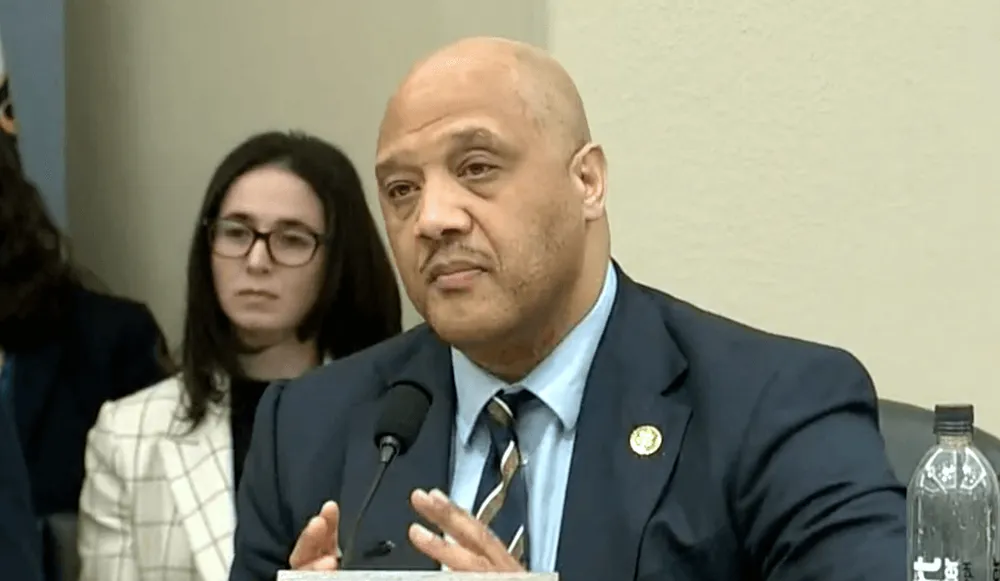Lineup set for House talks on Section 702 surveillance law
The House Intelligence Committee’s working group on the renewal of the warrantless surveillance law known as Section 702 will include two members who served on the panel during the last contentious reauthorization fight that occurred during the Trump administration.
The committee’s top Democrat, Jim Himes of Connecticut, named his choices Wednesday to join three already appointed Republicans who will try to write a bill that can persuade a divided Congress to extend the much-debated portion of the Foreign Intelligence Surveillance Act, which will expire at the end of the year without congressional action.
The picks are Reps. André Carson (D-IN), the second-most senior member on the minority side; Joaquin Castro (D-TX), another longtime committee member; and Jason Crow (D-CO), a former U.S. Army Ranger. The working group is expected to undertake its heavy lift right away.
“The six members of this working group encapsulated the thoughtful, pragmatic, bipartisan approach that will be essential to tackling one of the most important issues facing this Congress,” Himes said in a statement.
Committee Chairman Mike Turner (R-Ohio) announced the evenly split group earlier this month during the public portion of the panel’s worldwide threats hearing.
He tapped Rep. Darin LaHood (R-IL), a former terrorism prosecutor, to lead the squad, which includes Rep. Brian Fitzpatrick (R-PA), a former FBI agent; and Rep. Chris Stewart (R-UT), who was a one-time contender to be the director of national intelligence by the Trump White House. The Record reported last year that Turner had informally tasked LaHood to spearhead the renewal push among the committee’s Republicans.
It was during that same public hearing that LaHood, the head of the panel’s NSA and Cybersecurity Subcommittee, revealed he himself had been the target of FBI searches of the massive Section 702 database.
“I have had the opportunity to review the classified summary of this violation, and it is my opinion that the member of Congress who was wrongfully queried multiple times solely by his name was, in fact, me,” he said, referring to a footnote of a report that was declassified in December.
Congress last extended the life of the surveillance powers — which allow the federal government to collect the emails and electronic communications of foreign intelligence targets from U.S. companies like Google, but also incidentally vacuum up the personal data of Americans — in early 2018.
LaHood’s team will now sport two committee veterans in Carson and Castro who had a front row seat for the last reauthorization fight, when Trump frequently tweeted the statute had been used to spy on his campaign aides during the 2016 election.
After a brief extension, Trump eventually signed a six-year extension into law, but not before he conditioned many congressional Republicans and privacy-minded Democrats to oppose any surveillance efforts.
The House Intelligence Committee shares jurisdiction over Section 702 with the Judiciary Committee and their two Senate counterparts.
However, the Judiciary panel’s roster includes several members who believe the authority should simply expire and the committee overall is riven by bitter partisan politics, potentially making the six-member working group the chamber’s best chance to inform any eventual legislation to extend the surveillance powers, instead of being forced to accept a Senate bill.
“I believe that the reauthorization of Section 702 is necessary to ensure the Intelligence Community maintains its ability to collect invaluable foreign intelligence to stay a step ahead of our adversaries, but corrections must be made to protect American citizens’ constitutional rights,” Turner said in a statement.
“Our FISA Working Group … is committed to finding bipartisan solutions to reform the Intelligence Community’s foreign surveillance tools,” he added.
Martin Matishak
is the senior cybersecurity reporter for The Record. Prior to joining Recorded Future News in 2021, he spent more than five years at Politico, where he covered digital and national security developments across Capitol Hill, the Pentagon and the U.S. intelligence community. He previously was a reporter at The Hill, National Journal Group and Inside Washington Publishers.



